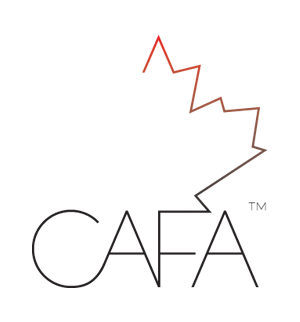
On Friday evening, a fashion summit meeting of sorts is taking place in Toronto, and big names will be in attendance: Coco Rocha, the supermodel-turned-personality, is flying in, as are the London-based designer Erdem Moralioglu and the New York-based designer Jason Wu, and the nonagenarian style icon Iris Apfel.
They will be gathering for the Canadian Arts and Fashion Awards, an annual event akin to those regularly hosted in New York by the Council of Fashion Designers of America and in London by the British Fashion Council. Though this will be only the fourth incarnation of the CAFA, it is also the biggest.
While conventional wisdom has long held that for Canadian designers to make it on the global stage, they have to establish their names elsewhere, the attendance list at CAFA suggests they may be beginning to realize the attractions of home.
It also reflects the way in which Canadian fashion has been working to leverage the spike in global attention the country has attracted since the election of its mediagenic young prime minister, Justin Trudeau. Mr. Trudeau’s efforts on behalf of refugees, his vocal commitment to feminism, and his personal style have transformed both him and his wife, Sophie Grégoire Trudeau, into international celebrities. And for fashion, therein lies opportunity.
“When we started talking about doing an awards event, there wasn’t anything like this in the country,” said Vicky Milner, the president of the CAFA. “We didn’t just want to throw a party. We wanted to build a community, to make a one-voice appeal for the world to take notice.”

They enlisted major corporate sponsors: Swarovski, Joe Fresh, Sephora and Hudson’s Bay. They strategized beyond one night, offering local designers mentorship opportunities, organizing fashion showcases and pop-up retail events, and teaming up with the Toronto Maple Leafs hockey team, on a design challenge.
And last year they snagged a high-profile champion: Ms. Grégoire Trudeau, who presented the Fashion Impact Award. “We are renowned around the world for our creativity and innovation in many sectors, but people aren’t informed enough about our fashion scenes,” she said in a recent statement, adding, “I can only speak for what I can do, and that is to take part in letting the world know that some of the best creative talents in the fashion industry are right here in Canada.”

In much the same way that Michelle Obama used her role as first lady to highlight a range of American designers — including new names such as Brandon Maxwell and Christian Siriano and major labels like Oscar de la Renta and Michael Kors — Ms. Grégoire Trudeau has made a point of wearing the designs of local brands, including Beaufille, Lucian Matis and Smythe at every opportunity.
As a result, said Tanya Taylor, a designer who is from Toronto but maintains her business in New York City: “There are a lot of Canadian designers I had never heard of becoming more popular both in the U.S. and Canada. I think Sophie Trudeau started that change.”

Dexter Peart, who, with his brother Byron were among the founders of the Montreal-based label WANT Les Essentiels in 2006, noted that Instagram and e-commerce platforms have enabled designers to connect with consumers across Canada and the world more quickly than before. “Everything is available at the touch of a button,” he said. “People are looking at the same exact trends in Toronto as they are in New York and Los Angeles.”
He sees the changes as a boon for up-and-comers. “If I were 19, I would feel like there’s much more of a community for me than when we were starting up,” he said.

Still, designers say there is a long way to go.
According to Ms. Taylor, Canadians sometimes consider local labels to be less prestigious than foreign names. “When it comes to Canadian brands, there’s no context about what a brand is about,” she said. “There’s no marketing around it, and so customers expect to pay less.”
In addition, she said, there is not enough of a local support system. “There need to be people helping build business plans and helping with pricing strategy,” she said. “Those are the questions that constantly come up when I do talks in Canada.”
Chantal Malboeuf, a product manager who worked in Paris for LVMH-owned houses including Céline, Givenchy and Louis Vuitton for 10 years before returning to start her own development and production atelier in Montreal, believes the lack of logistical support has a lot to do with perception.
“The industry is not taken seriously as a business here,” said Ms. Malboeuf, whose job is to manage many of the behind-the-scenes details that are required for producing collections. “At Givenchy and at Vuitton, we had a budget, we had a collection time.”
Ms. Malboeuf said that if the government took the industry more seriously, investors would be more willing to fund fledgling designers and that all the roles that are required for efficient and ethical production would be more developed.
“CAFA did a good thing: They gave designers the recognition,” she said. “Now we have to help them in a business sense.” It may not happen immediately, she said, but “in 10 years, I think we can do it. I believe it.”
